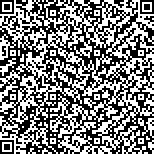| 摘要: |
| [目的]在大数据时代的网络营销背景下,研究乡村旅游经营者参与网络营销意愿及行为的影响因素,将有助于乡村旅游产品的营销方式与信息化时代结合,从而推动乡村旅游、乡村经济的快速发展,对实施乡村振兴战略具有重要意义。[方法]文章基于计划行为理论,以广西融水、阳朔乡村旅游区的179名乡村旅游经营者的调查数据为例,采用双槛模型对乡村旅游经营者参与网络营销的意愿及行为进行分析。[结果](1)文化程度、收入水平、风险类型、行为态度、主观规范和知觉行为控制对乡村旅游经营者参与网络营销的意愿都有显著的正向影响; (2)家庭人口数量、户主年龄对乡村旅游经营者参与网络营销的意愿都有显著的负向影响; (3)乡村旅游经营者参与网络营销的行为态度、主观规范、知觉行为控制通过参与意愿对乡村旅游经营者的参与行为产生0439的正向中介效应。[结论]村旅游经营者的网络营销参与意愿一般,受到主观规范、行为态度和知觉行为控制3个变量的影响,而且是显著的正向影响; 同时, 3个变量直接通过参与意愿变量,对参与行为产生正向影响(其中参与意愿充当中介变量作用)。 |
| 关键词: 乡村旅游经营者网络营销计划行为理论双槛模型广西 |
| DOI: |
| 分类号:F590 |
| 基金项目:国家旅游局旅游业青年专家培养计划课题“(151008) 乡村旅游目的地建设及经营管理”(TYETP201546) |
|
| A STUDY ON THE WILLINGNESS AND BEHAVIOR OF RURAL TOURISM OPERATORS TO PARTICIPATE IN NETWORK MARKETING* ——BASED ON THE SURVEY DATA OF RONGSHUI AND YANGSHUO IN GUANGXI |
|
Lin Yi, Tian Maolu, Zeng Huizhu
|
|
Business School of Guangxi University, Nanning, Guangxi 530004, China
|
| Abstract: |
| Under the background of network marketing in the era of big data, it will be helpful to combine the marketing mode of rural tourism products with the information age by studying the influencing factors of rural tourism operators′ participation in network marketing willingness and behavior. To promote rural tourism and the rapid development of rural economy, it is of great significance to implement the strategy of rural revitalization. Based on the theory of planning behavior and the survey data of 179 rural tour operators in Rongshui and Yangshuo, Guangxi, this research analyzed the willingness and behavior of rural tourism operators to participate in network marketing by using double threshold model. The results show that (1) The educational level, income level, risk type, behavior attitude, subjective norm and perceptual behavior control all have significant positive effects on the willingness of rural tourism operators to participate in network marketing. (2) Household population and the age of head of household have a significant negative influence on the willingness of rural tourism operators to participate in network marketing. (3) Perceptual behavior control has a positive intermediary effect of 0.439 on rural tourism operators′ participation behavior through participation intention. The willingness of rural tourism operators to participate in online marketing is generally influenced by three variables including subjective norm, behavioral attitude and perceptual behavior control, and they are significantly positive. The three variables directly influence the behavior of participation through the variables of willingness to participate (in which the willingness to participate acts as an intermediary variable). |
| Key words: rural tourism operators network marketing theory of planned behavior double threshold model Guangxi |

